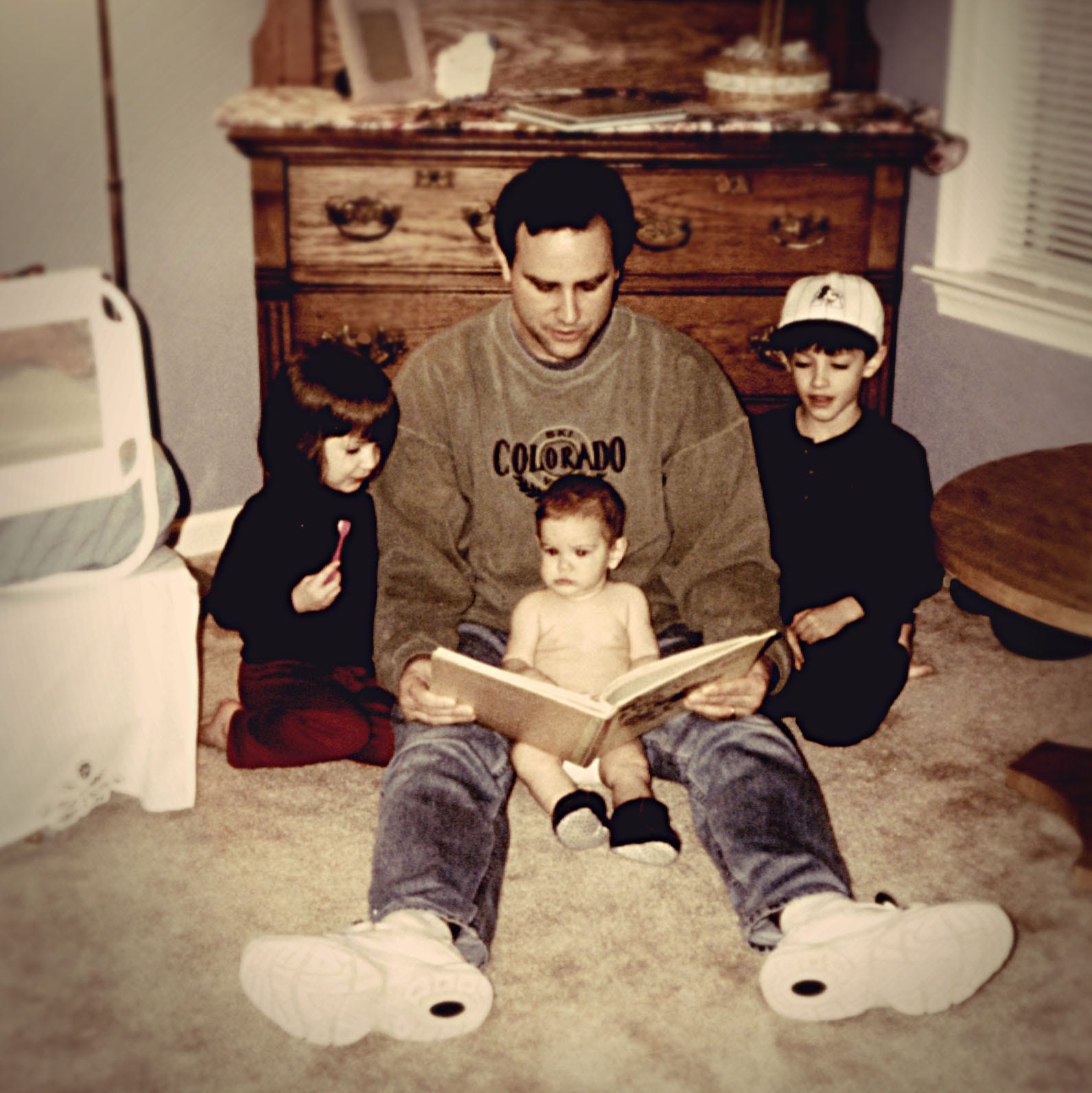“Marketing is a contest for people's attention.”
Now that I am enjoying being an empty-nester, it’s tempting to think back on all the mistakes I made as a father. Like the time my daughter incessantly knocked on our bedroom door in the middle of the night. She kept saying she was sick, but I didn’t believe her and kept telling her to go back to bed. My wife finally answered the door, just in time to catch the spewing vomit with cupped hands. The carpet stains are there to this day.
But I tend to think there was at least one thing I did right: I taught my children to listen for the sound of my voice. That might seem like something out of “Father Knows Best,” but I simply wanted them to be safe and secure.
When my son was 5 years old and learning to ride a bike, he loved to show me how his skills and confidence were growing. One day after I got home from work, he showed me how he could ride down the driveway and maneuver the bumpy turn onto the street.
But just as he was giving full attention to handling his bicycle, I saw a car turn onto our street, something that happened very rarely. Without hesitating, I shouted his name at full blast. In an instant, he put on his brakes, stopped the bike and jerked his head back with a panicked look on his face.
Sometimes there is good reason to shout to get someone’s attention.
A few years later I was coaching my son in baseball while my daughters were at a nearby playground. Suddenly a parent came running up to me — urgency in her face — and said that my youngest daughter was hurt and bleeding. Three years old at the time, she had taken a fall and tumbled onto an unforgiving metal pole, chin split wide open.
While we sat in the emergency room waiting for the doctor to give her stitches, I held her close and whispered stories into her ear. Little by little, I could feel her body begin to relax. She knew the sound of my voice and she trusted me. I still remember the doctor’s comment that she’d never seen a child so relaxed while receiving stitches.
Sometimes there is good reason to whisper to get someone’s attention.
To shout is to use the element of surprise, and it can be very effective. But of course, if everyone is shouting at once, no one gets heard. And to whisper is to use the element of familiarity. But without trust, a whisper is only a whisper.
They say good parenting is less about following rules and more about assessing your child’s needs, and so it goes with the storyteller’s drive to command attention from an audience, albeit with much less stickiness. That is, when we identify the needs and interests of our audience, we are able to bring both surprise and familiarity to the engagement, which transports them to a place that is new and imaginative, but also safe and comfortable.
As contemporary media theory grapples with the impact of digital technology on both form and content, we must remember that human beings are the ones whose attention we seek to gain. Because we are human, the art of blending surprise and familiarity into our stories — print and digital, static and dynamic — wins more than attention; it can create a sense of wonder.

When I would read books to my children, they would develop rituals around our story time. These changed and grew over the years, becoming ever more intricate, but their desire for familiarity was constant and palpable. It was important for everyone to be sitting in the right spot. They sometimes liked to read the same books over and over. They took great joy in laughing at just the right spot or finishing the sentence on the next page.
And yet, without fail, there was always an element of surprise. That was never more true than when we introduced a new story, but we also could discover something new in the well-worn places of our most beloved books: a turn of phrase we had never caught before, an expression on a character’s face, a new tone of voice that suddenly changed the meaning.
Why do children love stories? Because they long for new worlds — those that are enchanting and strange, but somehow familiar. What may seem like a contradiction actually creates that sense of wonder. And when that happens with our own audiences, marketing becomes an intimate conversation with a trusted voice.
